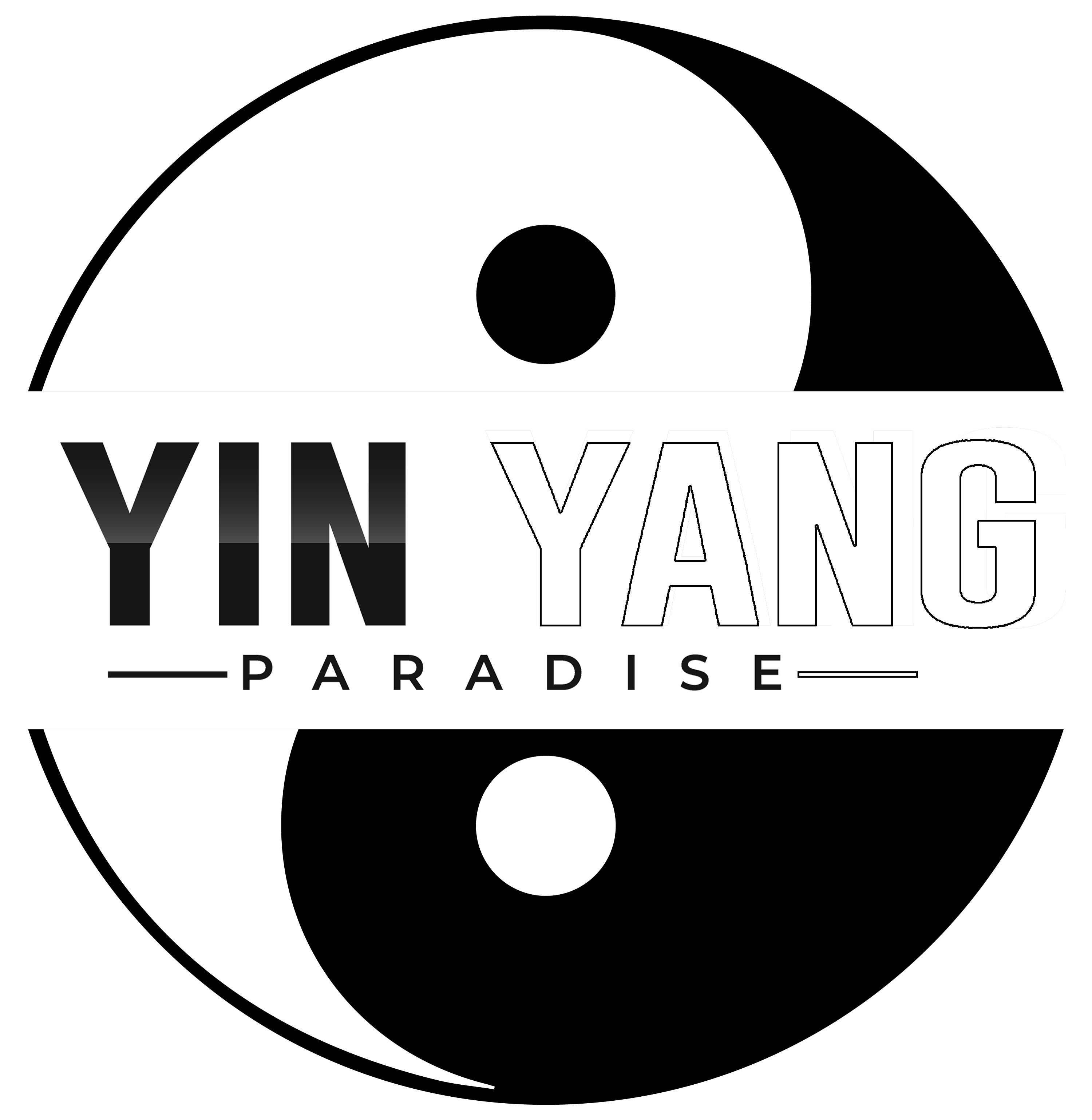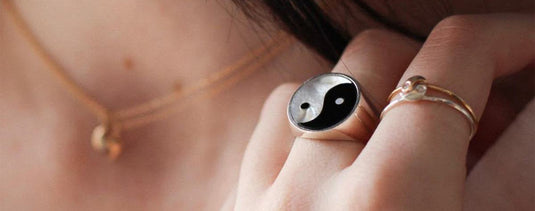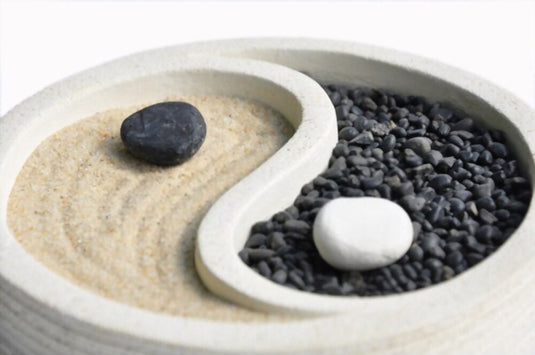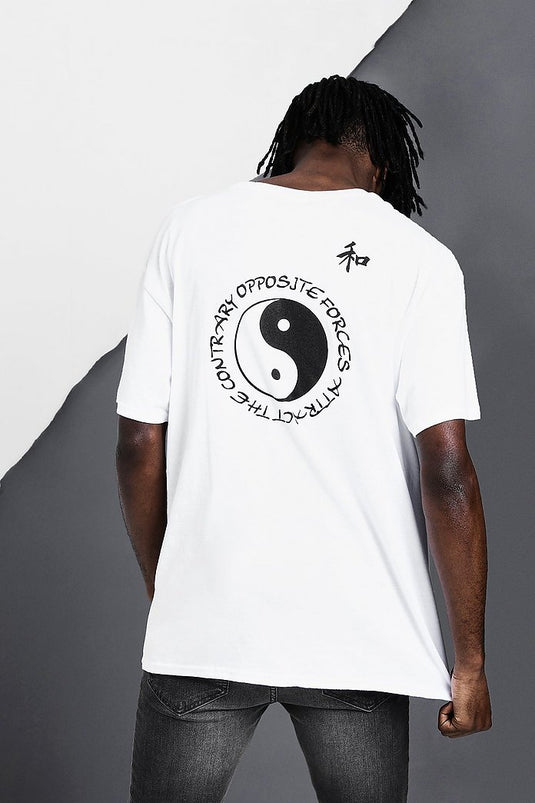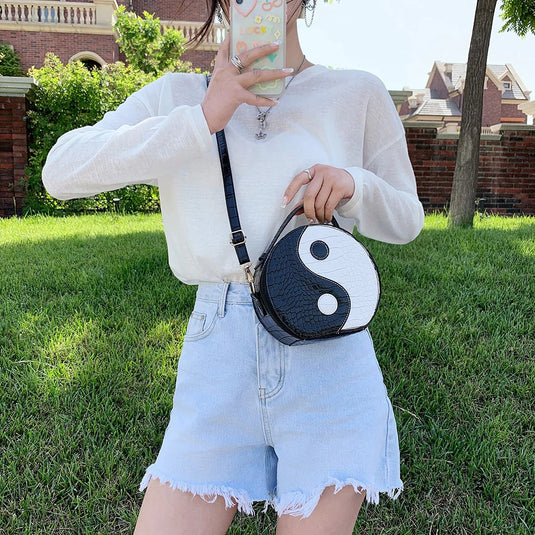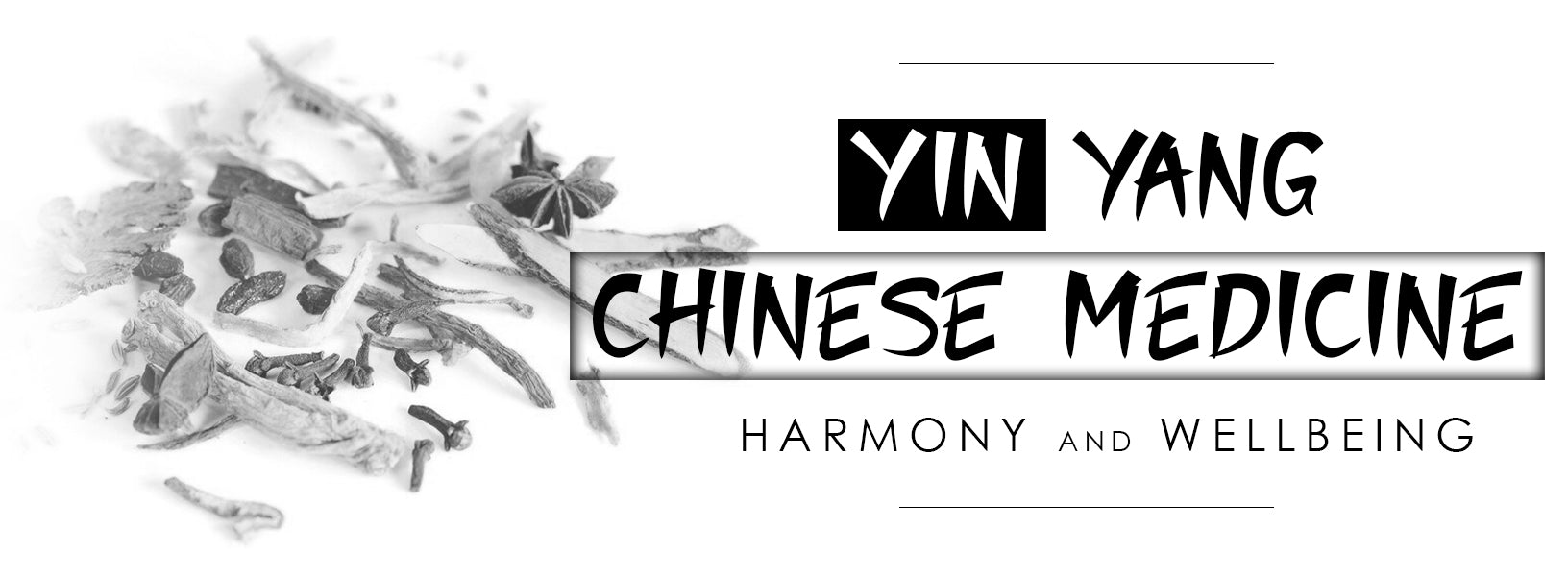The Chinese civilization gets its basis from the well-known Taoist principles of Qi, the five movements, and Yin-Yang. Undoubtedly, the significance of Yin-Yang has penetrated almost all the parts of Chinese being from the earliest of time, playing an influential role in art, astrology, government, and most importantly, medicine. 🩺
It is safe to say that Chinese medicine must be as aged as the Chinese civilization itself. After centuries of evolution, Traditional Chinese Medicine (TCM) has become an incredibly sophisticated and rich system of rational medicine with diverse applications and theories. Still, in its primary essence, it aims to comprehend and facilitate harmony in our lives.
TCM is based on a simplified belief that a system in harmony tends to sustainability, wellbeing, and health, while a system in disharmony leans towards disease, illness, collapse, and suffering. Yin and Yang are amongst the most vital concepts in TCM. In this guide, we discuss the association and significance of Yin-Yang Chinese medicine, and the many benefits of TCM. 🌿

The Fundamental Concepts of Chinese Medicine and Yin-Yang
Chinese medicine is basically centered on two unique and fundamental concepts: Qi (vital energy) and Yin-Yang (the harmony and balance of all opposing forces and elements that make up our way of life). These 2 notions form the root of Chinese medicine.
Springing from these roots are fundamental theories, practices, and principles about the dynamics of Yin-Yang and Qi, making up the stems of Chinese medicine. And the remaining applications and theories regarding Traditional Chinese Medicine rest on these principles, such as what causes disharmonious patterns. These form the branches.
Despite the TCM ideas and techniques being thousands of years old, they are still relatively prevalent in China and adopted by several countries worldwide. 🌎

You will find a unique yet confusing blend of traditional and contemporary medical practices in China. In fact, some might be thrilled, confused, or even scared by these conventional practices that they come across and the specific medical advice they receive.
Being the foundation of diagnosis and treatment, Yin and Yang are among the most vital concepts in Traditional Chinese Medicine. Yin-Yang was initially referenced in I-Ching – The Book of Changes, written somewhere around 700 BC. It pertains to the idea that everything in nature and the phenomena around us is made up of 2 paradoxical energies or phases.
Even though the forces of Yin-Yang are opposite, they are mutually interconnected. Together, Yin and Yang make up all the aspects of life. Yin-Yang’s original meaning can be interpreted as “Bright side-dark-side.”
So, Yin is believed to be female, passive, earth, dark, absorbing and characterized by a broken line, the color orange, and a tiger. On the contrary, Yang is believed to be male, active, heaven, light, and characterized by an unbroken line, the color azure and the dragon. 🐲
Yin and Yang in Chinese Medicine: The Application of Yin Yang Theory in TCM
Now that the concepts of Yin and Yang have been understood, we will observe how this fundamental concept is applied to Chinese Medicine. In TCM, Yin-Yang is the core basis for understanding everything about health and diagnosis and treatment of diseases or illnesses.
According to Chinese medicine views, diseases and health are seen as balancing forces of Yin-Yang. When our body is in optimal balance amid Yin and Yang, our health is bound to be predominant. Conversely, when there is an imbalance between Yin and Yang, diseases are bound to occur.
Chinese medical practitioners see Yin-Yang as a way of seeing life. Everything in this world works together to be a part of a unified whole. It is not possible to see anything as absolute or in isolation.
This healing philosophy disagrees with the Western medicine ideology, where specific diseases might be treated in isolation without even taking into consideration the complete health of the person – the body, mind, and spirit. 🧠
The Yin-Yang concept in Chinese medicine is associated with the idea of five elements or acting agents: earth, fire, water, wood, and metal. The utmost goal of Chinese medicine practitioners is to create a harmony between Yin-Yang and restore its balance via these five agents.
Before moving on to the practical applications of the Yin-Yang Theory in TCM, we look at some of the causes of disharmony in the body.

Causes of Disharmony in the Human Body
You can have a 51%-49% disharmony of Yin-Yang and still experience severe signs and symptoms. The Yin and Yang dynamics are constantly changing and shifting around us. Hence, it is essential for us to continually respond to such changes to maintain the Yin and Yang harmony in our lives to maintain our wellbeing and health.
Suppose you do not respond appropriately to such changes. In that case, the Yin and Yang harmony tend to tilt into a disharmonious pattern. This is followed by diseases, sicknesses, and suffering.
The probable causes of disharmony can be classified into two categories: excess and deficiency. Here are some of the possible cases when there is disharmony between the Yin-Yang forces. ☯️
Not Enough Yin (Or Yang)
Under such circumstances, an individual has a normal level of Yang but not enough Yin. In Chinese medical terms, this refers to Yin vacuity or Yin deficiency. Another situation can be when an individual has a normal level of Yin but too little Yang. This can be called Yang vacuity or Yang deficiency.
Too Much Yin (Or Yang)
If an individual has a normal level of Yang but excessive Yin, it would be referred to as a repletion or an excess of Yin. On the contrary, if an individual has a normal level of Yin but excessive Yang, it would be referred to as a repletion or an excess of Yang.

Physiological Application
Traditional Chinese Medicine also believes that eternal health can only be achieved when there is a harmonious relationship between Yin and Yang. The physical form of a human body belongs to Yin. In contrast, the function or activities of a human body belongs to Yang.
Since both functions and the physical form of a body tend to be energetically balanced, they can mutually confine or depend on each other. The human body can't function if there is no physical form for them to perform activities in. Moreover, the physiological functions tend to use up some physical forms and digest them to acquire energy. ⚡

Pathological Application
Furthermore, TCM believes that disharmony between Yin and Yang is the primary cause of physiological disorders and diseases. When talking about disharmony, we refer to the unbalanced and unequal proportions of Yin and Yang. This indicates that while one aspect is in excess, the other is deficient, and vice versa.
Many factors result in Yin-Yang disharmony. They are connected to the flow of qi throughout the entire body and the evil (or external) influences that cause illnesses and diseases. When you have a regular flow of qi, your body will function well and have good immunity, making it easier for you to recover from an illness.
Normal qi comprises Yin fluid (physiological fluid and physical form of the body) and Yang qi (physiological energy and functions). On the other hand, the wicked evils are made up of 6 evils. Dampness and cold have their place amongst Yin evils, whereas dryness, wind, fire, and summer heat can all be found within Yang evils. 😈
Thus, diseases can result from either an excess of the wicked evils (surplus of Yin or Yang evils) or a deficiency of normal qi level (deficiency of Yang qi or Yin fluid). The clashes between eliminating the wicked evils and restoring qi back to normal levels enable the disease to move forward to convert back to a healthy form.
Using the Yin-Yang theory for treating and diagnosing illnesses, one can restore the Yin-Yang harmony and maintain health. ⚖️

Diagnostic Application
TCM diagnoses people based on their patterns of disharmony. The disharmony patterns can be categorized into a system called the 8 principal patterns. These 8 chief patterns comprise pairs of 4 patterns:
- Cold and heat
- Interior and exterior
- Deficiency and excess
- Yin and Yang
Out of these 8 patterns, Yin and Yang are thought to be the most significant and crucial pattern pair. The signs of Yang are linked with active, external progress, hot, and developing upward and enhancing manifestations. Conversely, the signs of Yin are linked with passive, resting, internal advancement, and developing downward and deteriorating manifestations.

5 Benefits of Traditional Chinese Medicine
Traditional Chinese Medicine is a natural and holistic medicinal system that has been in existence and used for more than 2000 years now. It is explicitly designed to expedite your body’s healing mechanisms and bring back numerous health benefits, psychologically and physically. Here are 5 essential health benefits to using Traditional Chinese Medicine.
1. It Can Reduce Inflammation
It is incredibly essential to reduce inflammation in your body as inflammation is one of the root causes that leads to an array of several other diseases, such as autoimmune diseases, diabetes, heart diseases, and cancer. TCM helps in alleviating inflammation along with the consequences linked with it.
This can happen in various ways, including acupressure, acupuncture, and herbal treatments. During this process, ancient Chinese medicine also aids you in stopping any such lifestyle habits that can cause harm to your body or worsen the inflammation, like smoking cigarettes, excessive eating, or excessive consumption of alcohol. 🍷
2. It Can Boost your Flexibility and Muscle Strength
When we wish to boost the flexibility and strength in our muscles, we usually consider doing strength training exercises. Even though that is beneficial, TCM is also a very effective way of improving your muscles. 💪
Daily practice of tai chi can be an incredible and essential source of aerobic workouts. Just three months of practice can improve your ability to balance, maintain or boost your agility and flexibility, and improve your overall muscle strength.
3. It Protects and Develops Your Mental Health
Your health is the most valuable asset, and you should make it a top priority to protect and take care of your physical health. Likewise, it is equally or imperative to guard your mental health too. Once again, TCM proves to be highly effective for your physical and mental health and wellbeing.
Besides helping in reducing inflammation, Chinese herbs can also aid in relieving stress during the process. Chinese herbs effectively regulate the hormones that guard the brain, which control your body’s immune response. By using Chinese herbs, the chances and risk of developing dementia later on in life also decrease. 📉
4. It Has Very Few Side Effects
Most stimulants and medications are made to help our bodies deal with various nasty side effects. Luckily, Chinese medication works differently. The side effects of Chinese medicine are relatively more minor, and the few side effects that are even associated with it are practically harmless.
5. It Enhances the Quality of Your Sleep
Finally, Traditional Chinese Medicine also helps in enhancing the quality and patterns of your sleep. Typically, an adult requires 8 hours of undisturbed and good quality sleep on average every night. A well-rested good night’s sleep helps improve your cognitive strength and blood circulation and eliminates anxiety. 👍

The Human Body and the Yin-Yang
As per Traditional Chinese Medicine, our body has an organic unity. This sense of unity is centered on the complementary yet contradicting associations of Yin and Yang. The tissues and organs of our body can be categorized in line with the Yin-Yang theory, based on the body part locations and functions.
For instance, the lower body belongs to Yin while the upper body belongs to Yang. Some other pairs of Yin and Yang in the human body are:
- Front (Yin) vs. back (Yang)
- Interior (Yin) vs. exterior (Yang)
- Inside (Yin) vs. outside (Yang) of the limbs
- 5 Yin organs vs. 6 Yang organs
The five 5 Yin organs and 6 Yang organs are as follows:
Yin Organs
- Spleen
- Liver
- Heart
- Kidneys
- Lungs
Yang Organs
- Bladder
- Stomach
- Gallbladder
- Small intestine
- Large intestine
- Triple burner (a functional organ without a physical structure)

Each of these organs can be subdivided further concerning Yin and Yang aspects (e.g., kidney Yin or kidney Yang, heart Yin or heart Yang, etc.) The two principal human body substances of blood and Qi can also be defined in terms of Yin-Yang. 🩸
For instance, Qi is Yang in nature, meaning it is energetic, active, and vital. Blood is Yin in nature, meaning it is fluid, substantial, moistening, and nourishing. The imbalances in Yin-Yang account for the emergence and development of diseases in human beings.
The body’s response or lack of response and disease nature are also examined in terms of Yin-Yang. The countless number of disease indicators can be comprehended and treated according to Yin and Yang's nature. 🍃
